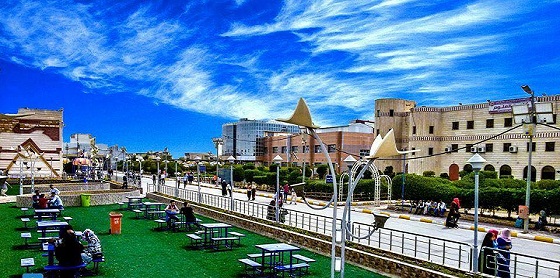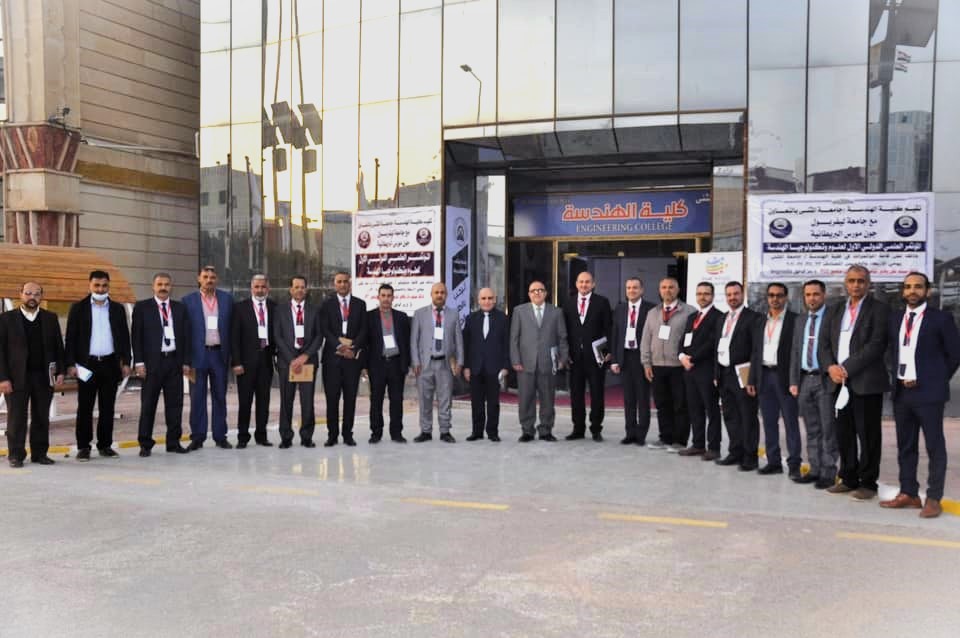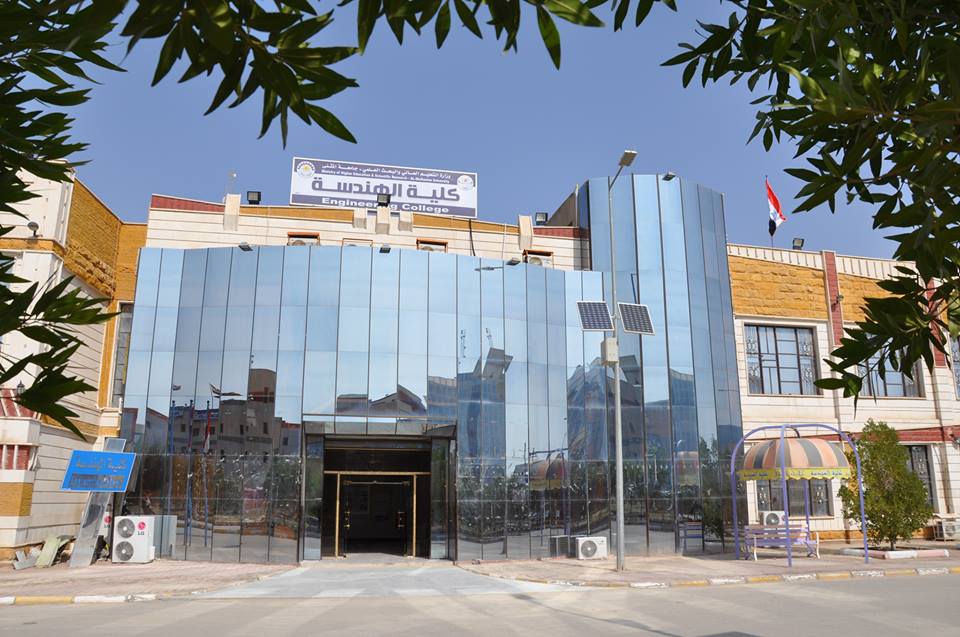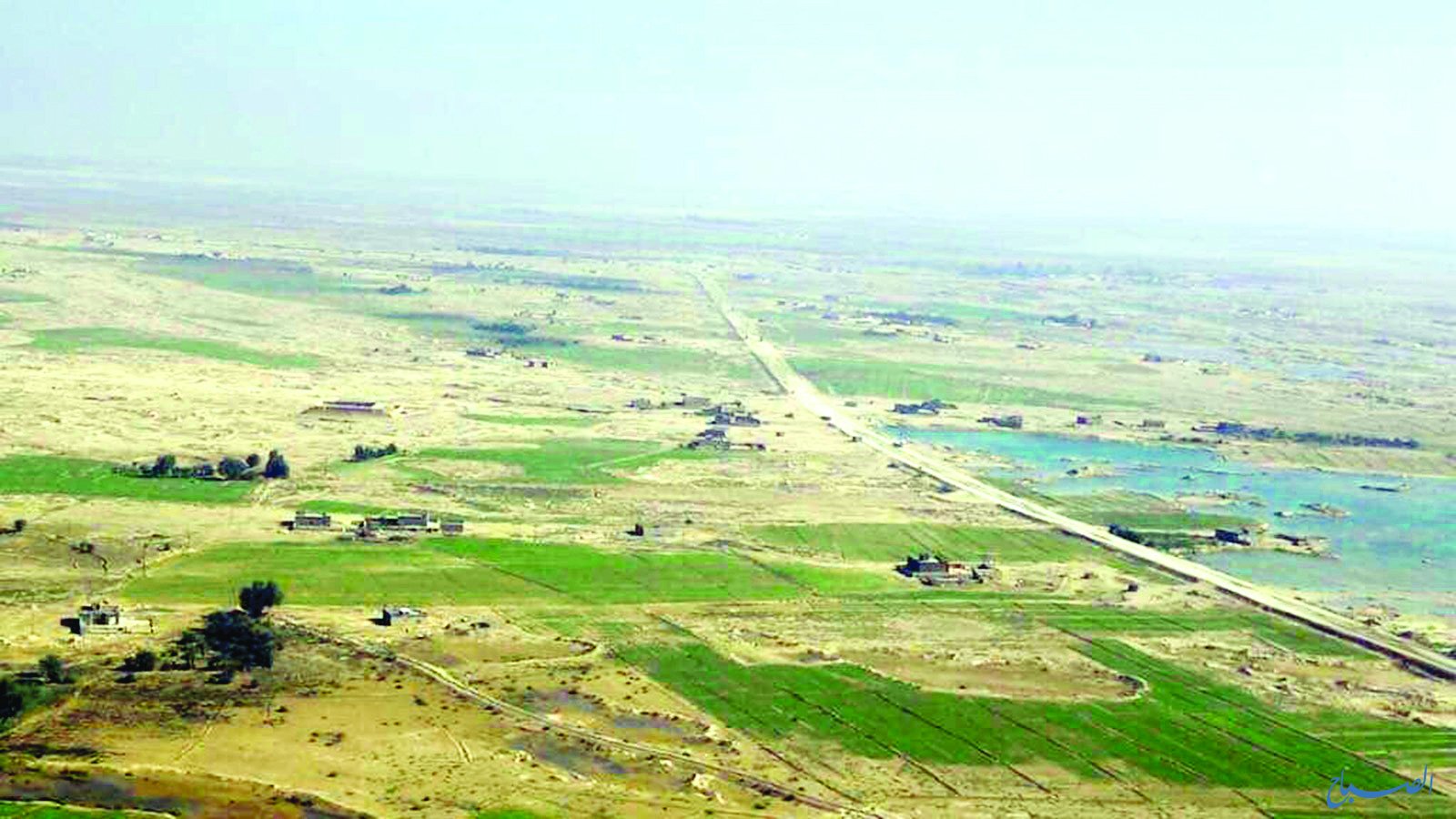Study Program in Iraq
Welcome to a distinguished academic journey at the College of Engineering, University of Muthanna
Why choose to study at the College of Engineering at the University of Muthanna?
Rich history


Distinguished academic staff
Supportive learning environment


Safe environment
What facilities do we offer?
Organizing competitions and sports events


Providing facilities for students with special needs
"The academic programs we offer (Bachelor's degree)
Bachelor of Science in Civil Engineering
Civil engineering program at Al-Muthanna University is a wide-ranging subject led by one of the most professional teaching staff in Iraq. The importance of the program came from its ability to provide the engineering knowledge needed for establishing infrastructure and building better environment for community. The program provide degree in general civil engineering that’s give its holder with required knowledge regarding using building materials, designing steel, concrete and materials structures, designing transportation and environmental systems, and establishing management requirements for these structures and systems.
Level 1 exposes students to the fundamentals of engineering, suitable for progression to most of programs within the engineering group. Programme-specific core topics are covered at Level 2 preparing for designing and execution projects’ led subject specialist modules at Levels 3 and 4.
At Levels 2, 3 and 4 students are set to take most of their module credits topics that ensure the breadth of knowledge expected of a graduate with a civil engineering degree. This allows students to develop their own wide-ranging interests in civil engineering works. Decisions on what to study on elective courses are made with input from personal instructor.
There is a required field course in Level 1, which students must pass in order to progress into Level 2, and optional field courses in Level 4. At Level 4 all students carry out a group project (capstone project), which is 8 credit hours. The capstone project for every group of students is developed and fostered from either topics that embedded in lecture modules or taught in dedicated practical modules, research seminars and tutorials. They mostly related to solving problems from outside university using library or data analysis, or field or laboratory-based work.
Bachelor’s degree (B.Sc.) – Chemical Engineering
The aim of this program is to graduate students of the highest quality who will demonstrate technical and professional leadership and who will go on to successful careers in industrial and other sectors of the economy. Students will achieve this aim by developing a strong foundation in the fundamental principles of science, mathematics and engineering and use this to build sound practical expertise and engineering judgment. Students will study core chemical engineering subjects and will be able to demonstrate your competency in these subjects. This is a holistic, systems-based approach to problem analysis and solution the aim of which is to ensure that students can demonstrate the essential elements of Chemical Engineering to a high standard. Students will also study relevant business, economic and environmental subjects which will complement your core competencies resulting in a well-rounded graduate profile. The course will use a variety of learning and teaching methods to help you become a well-rounded, independent practitioner and students are expected to contribute to the discussion with academic and technical staff during your lectures, practical work and laboratories. We aim to encourage interdisciplinary interests and you may find that as you become more aware of the chemical engineering industry, student’s interests may develop in complementary directions. A variety of options is therefore available in the last year of the program which provide specialized options to fit individual needs and career preferences. Examples of these options include choosing streams that range from core chemical engineering subjects to management and humanities options, as well as technical options from across the Faculty of Engineering. As part of an integrated approach, students will also develop your professional and transferrable skills which include skills in group working, time and project management, problem-solving and competence in oral and written communication and presentation. Students will also gain a strong awareness of industrial requirements for ethics, health and safety. This will broaden your outlook and employability skills. At the end of this course, students will be fully qualified in Chemical Engineering but will also take a series of specialist modules which will give you a basis for employment in different industries. Consequently upon successful completion of student’s degree, students will be an industry-ready graduate with notable competencies across a wide of range of technical and non-technical subjects.
Bachelor’s degree (B.Sc.) – Architectural Engineering
Program Description: The Bachelor Degree in Architectural Engineering is a comprehensive and interdisciplinary program that aims to provide students with a strong foundation in the principles and practices of architectural design and engineering. The program combines theoretical knowledge with practical skills to equip graduates with the competencies necessary to contribute effectively to the field of architecture.
Program Structure: The program is structured into a series of core courses, elective courses, and practical experiences. The core courses cover fundamental topics such as architectural design, structural analysis, building materials, environmental systems, construction management, and professional practice. Elective courses offer students the opportunity to specialize in areas of interest such as urban design, sustainable architecture, heritage conservation, or digital fabrication. Practical experiences include design studios, internships, and industry-based projects that provide students with hands-on application of theoretical concepts.
Assessment and Grading: Student performance is assessed through a combination of examinations, coursework, design portfolios, presentations, and project evaluations. Grading is based on established criteria and guidelines, and students are provided with regular feedback on their progress.
Program Resources: The program provides access to well-equipped design studios, computer labs with industry-standard software, architectural libraries, and collaboration spaces. Students also have the opportunity to participate in field trips, workshops, seminars, and conferences to enhance their learning experience.
Program Accreditation: The bachelor’s degree in architectural engineering is designed to meet the requirements and standards set by relevant accrediting bodies and professional organizations. Accreditation ensures the program’s quality and credibility and enables graduates to pursue professional licensure and international recognition.
Program Continual Improvement: The program undergoes continual evaluation and improvement based on feedback from students, faculty, industry professionals, and external stakeholders. Regular curriculum reviews, industry partnerships, and faculty development initiatives ensure that the program remains up-to-date with industry trends and emerging practices.
Bachelor’s degree (B.Sc.) – Electronic and Communications Engineering
The electronic and communications engineering program at Al-Muthanna University was established to give its students a vast and detailed education in electronics and communications engineering basics, applications, and design that enable them to practice electronics and communications engineering at the professional level. The program’s mission is to provide them with the confidence and experience needed to meet the technical and social challenges of the future. In addition to the use of modern engineering tools, the program gives education in mathematics, physics, engineering mechanics, computer programming, and electronics and communications engineering to perform its mission. Graduates will be able to put themselves in entry-level of electronics and communications engineering positions leading to professional engineering practices and gain a solid undergraduate base that enables them to continue their learning at higher levels.